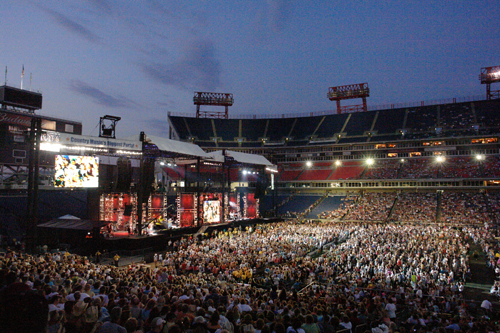 Located along the Cumberland River in Tennessee, USA, Nashville is the state's capital with a population of almost 700,000 people. Although its main industry is health care, it is best known as the Mecca of country music, and is nicknamed “Music City”. As the home of country music, Nashville is the second largest music production center in the USA, second only to New York. The city's music industry contributes almost $7 billion to its economy and employs almost 20,000 people in the Nashville area alone.
Located along the Cumberland River in Tennessee, USA, Nashville is the state's capital with a population of almost 700,000 people. Although its main industry is health care, it is best known as the Mecca of country music, and is nicknamed “Music City”. As the home of country music, Nashville is the second largest music production center in the USA, second only to New York. The city's music industry contributes almost $7 billion to its economy and employs almost 20,000 people in the Nashville area alone. 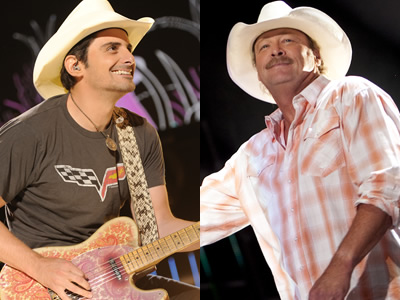
The jewel in Nashville's crown is the annual CMA Music Festival. Originally known as Fan Fair, the Festival started in 1972 and has grown to become the biggest country music event in the world. Hosted in June of every year by the Country Music Association, it is a four-day event which attracts over 400 country music artists from around the world who hold country music concerts, interact with their fans, and sign autographs for hours on end. Almost 300,000 people from more than 20 countries and 50 states of the USA attended the 2011 Festival enjoying 150 hours of concerts, over 30 hours of autograph sessions, celebrity sports competitions, family games and activities and interactive displays.
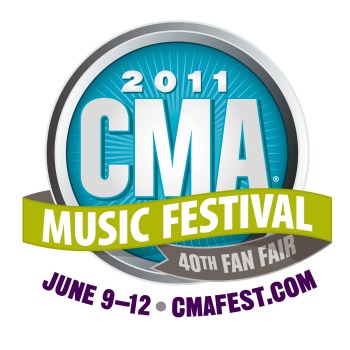
Artists perform for free at the Festival where half of the total proceeds of about $200,000 are donated to charity. In 2010, because of the floods which devastated Nashville earlier in the year, 100% of the proceeds went to charity, half for flood relief. The other half went to a program, in partnership with the Nashville Alliance for Public Education, called “Keep the Music Playing”, to support music education in public schools, and a “Words and Music” program which assists language arts and music teachers in the basics of songwriting. To date, donations by the Festival have reached almost $5 million. The 2011 CMA Music Festival is reported to have contributed $30 million to the Nashville economy.
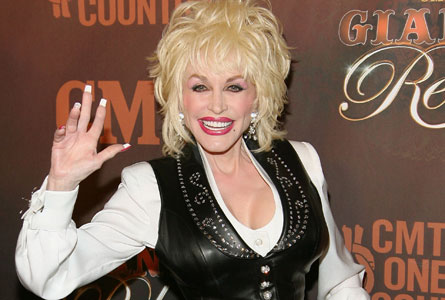 There are many interesting sidelights in the history of the CMA Festival. Paul McCartney was the first non-country musician to perform at the Festival during its third year. At the same event, Dolly Parton and Porter Wagoner sang their last duet together before ending their partnership. Singer Kathy Mattea, under doctor's orders not to speak to preserve her vocal chords, “conversed” with her fans through a computer. At the Festival's 25th anniversary, Garth Brooks had so many fans that he signed autographs for 23 hours and 10 minutes straight, without taking a single break. The Festival was renamed CMA Music Festival in 2004. When the ABC network televised a special of the event, it ranked no. 16 in the ratings, with a viewership of 9 million people.
There are many interesting sidelights in the history of the CMA Festival. Paul McCartney was the first non-country musician to perform at the Festival during its third year. At the same event, Dolly Parton and Porter Wagoner sang their last duet together before ending their partnership. Singer Kathy Mattea, under doctor's orders not to speak to preserve her vocal chords, “conversed” with her fans through a computer. At the Festival's 25th anniversary, Garth Brooks had so many fans that he signed autographs for 23 hours and 10 minutes straight, without taking a single break. The Festival was renamed CMA Music Festival in 2004. When the ABC network televised a special of the event, it ranked no. 16 in the ratings, with a viewership of 9 million people.
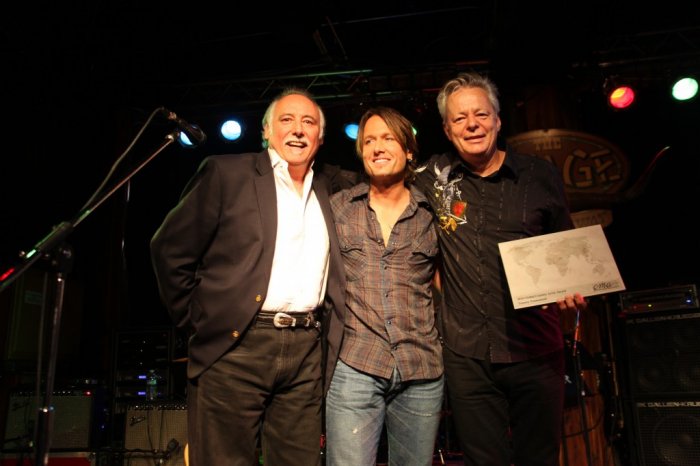 At the 2011 Festival, the big winners were Taylor Swift for Video of the Year, The Band Perry for Breakthrough and On Your Side awards and Blake Shelton for Male Video and Best Web Video trophies. Justin Bieber and Rascal Flatts received the Collaborative Video Award (the first country music award for Bieber). The other winners were Sugarland, Lady Antebellum, and Miranda Lambert, while The Zack Brown Band and Jimmy Buffett won the CMT Performance of the Year video.
At the 2011 Festival, the big winners were Taylor Swift for Video of the Year, The Band Perry for Breakthrough and On Your Side awards and Blake Shelton for Male Video and Best Web Video trophies. Justin Bieber and Rascal Flatts received the Collaborative Video Award (the first country music award for Bieber). The other winners were Sugarland, Lady Antebellum, and Miranda Lambert, while The Zack Brown Band and Jimmy Buffett won the CMT Performance of the Year video.
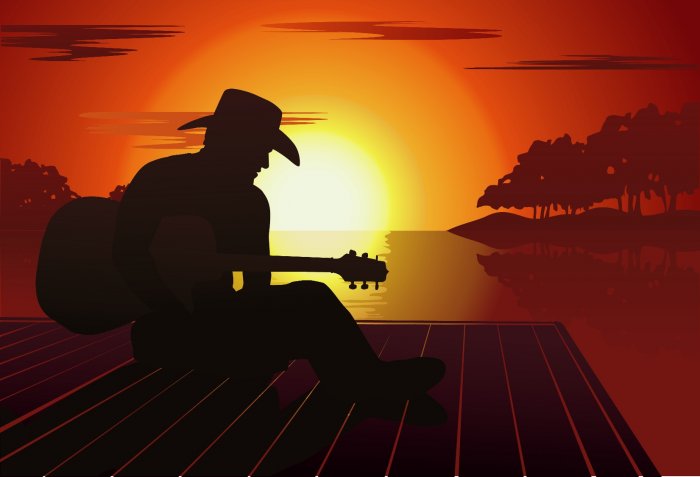 Over the last couple of years, there has lively discussion between diehard and progressive country music fans trying to define what country music is nowadays. We have seen a lot of debate over the appearance of pop/rock acts on country music festival bills and country artists foresaking their roots to gain top 40 exposure.
Over the last couple of years, there has lively discussion between diehard and progressive country music fans trying to define what country music is nowadays. We have seen a lot of debate over the appearance of pop/rock acts on country music festival bills and country artists foresaking their roots to gain top 40 exposure.
We have travelled a fair few miles over the years all the way from the suburbs of Melbourne to remote rural communities in Central Australia.
It seems that the further we head out, the more eclectic people are when it comes to what music they listen to.
We see more die-hards country music fans amongst our city friends. They show up to a venue, dressed up and looking the part with the boots, the hats and spend the night enjoying themselves dancing to the music they love. Try adding a classic rock tune to the mix and you will be met with disdain from the audience. "That's not country!" is the response you will get. Fair enough!
But as we go further "up bush", the opposite seems to happen. They love their country music no problems there, but throw in a classic rock tune in the mix and the crowd loves it. Herein lies the difference between our friends in the city and our friends in the bush.
Let's face it.. Country Music in the capital cities gets a really rough deal. The stereotyping of the genre as "hick" makes it pretty un-cool. I wish we had a dollar for every time we heard the usual quotes like "you play two kinds of music country AND western".. Bloody Blues Brothers!!!
So its perfectly understandable for urban country music fans to be protective about the music they love. Community radio stations and CMC are the only regular outlets for country music. You don't hear it on commercial radio and TV very much at all. So why should Guy Sebastian appear at Tamworth? People can hear and see him anywhere. Why invade "our" festivals? Its a perfectly understandable question. Shouldn't a country music festival be an enclave? A safe haven for country music fans to listen to the music they love?? Its a fair question.
As we travel further out of town, what we see is a different attitude. We've played to a very wide age group ranging from little kids to 90 year olds. Oh they love their country music. You'll get requests from everything from Slim to Keith Urban. It is not unusual for folks to want Alan Jackson and Lee Kernaghan and then Creedence and Cold Chisel the next!
Why is this so? Put simply, Country Music is still entrenched amongst rural communties but its not the be all and end all. In the last 20 years or so, living in the country has become less isolated. Tune into a country commercial radio station and you will get a mix of local programming which plays Adam Brand and Lady GaGa and then a syndicated feed of Hamish and Andy. The ABC also plays a mix of Australian music styles too through it regional radio and JJJ networks.
TV stations are networked, CMC, MTV, Channel V are on pay-TV. That means country people get to see what their city cousins see. Whether that is progress or not is another topic for discussion.
Then there is the demographic shifts to regional cities that have turned them into mini cosmopolitan centres as regional centres grow. Living in the country is no longer just about being a farmer so the music country people write is also changing with the time.
So when it comes to music, people in the country have access to a much broader range of genres and are more open to different styles. Play at a country gig and "Outback Club" is just as popular as "Summer of '69". Try doing that at a suburban pub or a country music gig in Melbourne!!! Neither the twain shall meet.
To urban folks, country music is defined as a genre that has its niche that is pigeon holed next to other genres. Fans protect and defend it to the hilt while the rest of the population dismiss it is as hick.
To rural fans, country music is defined as "music that people in the country listen to" and while it includes the actual genre and hold pride of place on peoples CD racks and i-pods, it co-exists with a lot of other stuff too.
As musicians who play country music, we have to be mindful of the way people listen to the genre nowadays. Gone are the days when you can have the same set list and take it on the road everywhere. Some folk want it to be "all country" while others want to hear a bit of classic rock thrown in. For a country-rock band to be successful, it needs to broaden its set list in order to appeal to different types of country music audiences.
Country music acts need to do exactly what many country towns have had to do. Diversify or perish!
Tony Bonnici
Leave it to Australians to take something as foot-stomping, hand-clapping as country music and wrap something even more raucous around it. Country music is about having fun and Australians have invented a unique fun event known as BNS (or B&S) Balls in which country music figures in a big way.
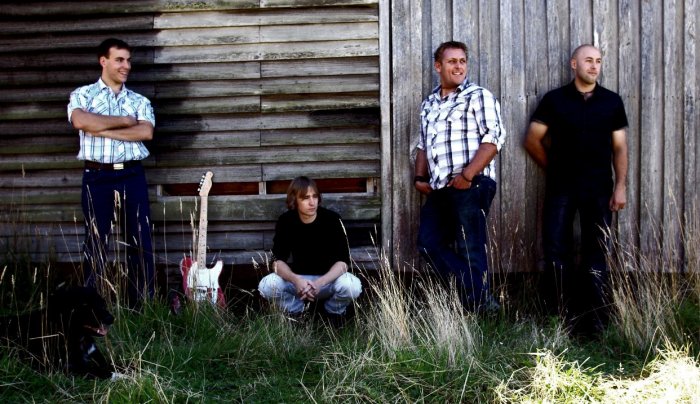
The Wolf Brothers (pictured) have recently played at the Elmore BNS Ball
B(achelor) & S(pinster) Balls (or Blokes & Sheilas as some call them) were originally a boy-meets-girl event in rural Australia. Young 18 year old girls (considered spinsters!) and bachelors (age irrelevant) would dress in formal wear, introduce themselves and then … party. As things go, this traditional practice has become Mardi Gras Aussie style. Fun loving Aussies can travel long distances to attend these balls. Volumes of beer, Bundy rum and other alcoholic drinks flow freely starting from mid-afternoon when couples trek in and continues until the wee hours of the morning. And, of course, country music sets the tempo, provides the beat and gets the juices flowing. After the entertainment, everyone goes to sleep in their sleeping bags on their vehicles or wherever they can find a space!
In modern BNS Balls, the formal wear has been discarded in favour of threads from op shops, bush hats, boots and gear with an RM Williams label. For many, it's a time to bring out favourite costumes otherwise seen on Halloween. BNS Balls and Ute Musters often go together. Ute enthusiasts often run BNS Balls where they can show off their stuff. In an anything-goes environment.
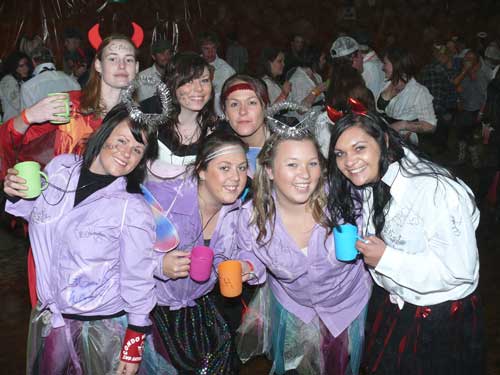
A BNS is organized and run by a committee, or in some cases civic organizations and local councils. The tab includes meals, drinks and souvenirs such as stickers, hats and even condoms. Proceeds of these events are donated to charity, the favourites of which are often the Royal Flying Doctor Service, Red Cross and Australian Cancer Service. Local communities in which the balls are held also benefit from the events. In some events the organizers conduct a “recovery” where the people move to a new place and continue having fun. As many as 3,000 people attend the bigger BNS Balls such as The Plucked Duck in Goondawindi, Queensland. Australian and international bands (not necessarily country) as well as individual artists perform for an audience that includes many visitors from other countries.
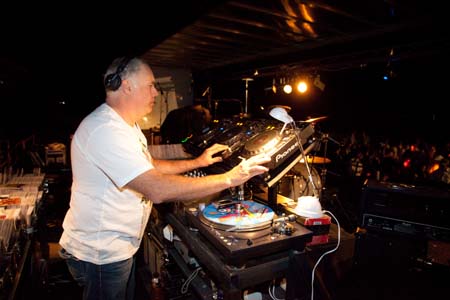
DJ from Goondawindi BNS Ball
Rising insurance costs and tighter regulations have taken their toll on many BNS Balls. These factors plus the migration of many rural younger Australians to cities in order to work, have reduced attendance to BNS Balls. However, many Australians have launched private efforts to keep the tradition alive, and they are succeeding. Websites have sprung up announcing schedules, posting photos and videos, and hyping up the events in general. Some balls have tried to upgrade their image to attract a more stylish audience. The event in Rockhampton in northern Queensland, for instance, has renamed itself the Rocky New Year's Festival and now includes horse races, a cruise, picnic and a New Year's Eve party in formal wear. But, Australia being what it is, the fun and the frivolity are the things they can't change or take away.
For your chance to participate in one of these great Aussie traditions, don’t miss the upcoming Condobolin BNS ball on 9th July!
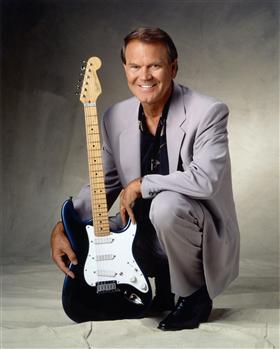
In a multi-faceted career filled with hit records and awards, Glen Campbell should also be credited with helping country music start-ups on their way to fame. In the early 1990's, at Atlanta airport, Campbell ran into a flight attendant who turned out to be Alan Jackson's wife. He gave her his business card as publishing manager which led to Alan working for Campbell's music publishing business. Many of Jackson's hit songs were published by Seventh Son Music, Campbell's publishing company. Keith Urban also credits Campbell with being an inspiration and a strong influence in his career.
Glen Travis Campbell was born on April 22, 1936, one of twelve children of a sharecropper, in Billstown, Arkansas, USA, a community of less than a hundred people. Even without being able to read music, he learned to play the guitar as a young boy. When he was 16, he moved to New Mexico and joined his uncle's band, performing on their radio show. Several years afterwards, he formed his own band, The Western Wranglers.
Moving to Los Angeles, Campbell spent some years as a session musician, part of a group that was in great demand at the time. This was followed by a tour with the Beach Boys. After limited success as a solo artist, he got his big break with his recording of the John Hartford song “Gentle on My Mind” followed by bigger hits “By the Time I Get to Phoenix” and “Wichita Lineman” from Jimmy Webb. For the first two, Campbell won Grammy Awards. The latter was named by Mojo Magazine and Blender as one of the greatest songs of the 20th century. During this period, big hits followed one after another.
In 1974, while on a tour of Australia, Campbell heard Larry Weiss' version of Rhinestone Cowboy and fell in love with the song. His recording became his largest-selling single, moving out over 2 million copies in a matter of months. A 2002 techno/pop version made by Campbell in the United Kingdom went to the Top 10 of the UK charts.
In the late 60's and early 70's, Campbell moved into television. He hosted a weekly variety show “The Glenn Campbell Goodtime Hour”. Using connections made as a session musician, he was able to host many name personalities like The Beatles, Johnny Cash, Linda Ronstadt, Neil Diamond and Willie Nelson. After the show went off the air, Campbell continued on television, appearing in made-for-TV movies, specials and variety shows.
After dropping off the top of the pop charts, Campbell remained in the Top 10 of country music charts with songs like “Faithless Love” and “A Lady Like You”. In 2008, he held his “Farewell to Australia” tour where he performed at the Sydney Opera House with the Sydney Philharmonic Orchestra. In 2010, Campbell released what was supposed to be his final album “Ghost on the Canvas”. A year later, he announced that he had Alzheimer's Disease and would release a final album and go on his final tour in August 2011.
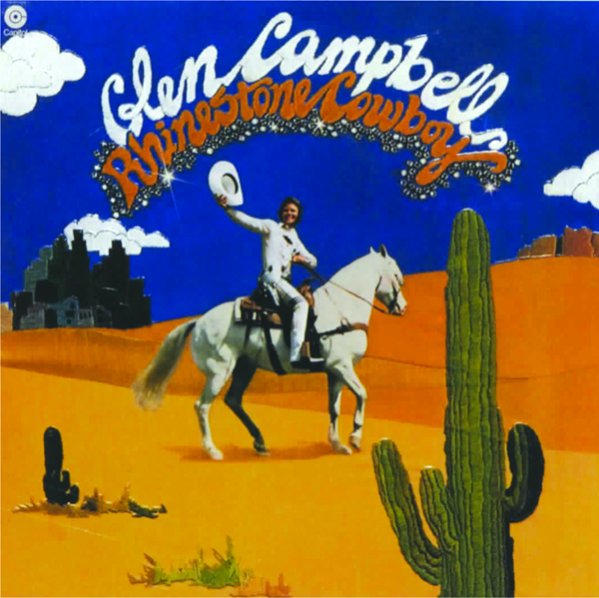
Throughout his 50-year career, he has sold 45 million records and garnered 12 RIAA Gold, 4 Platinum and 1 Double-Platinum albums. Campbell has won 8 awards from the Academy of Country Music, 3 American Music Awards, 2 Country Music Association Awards, 3 Dove Awards from the Gospel Music Association, 8 Grammy Awards and a Q Legend award.
In 2005, Glenn Campbell was inducted into the Country Music Hall of Fame, and in 2007 into the Musicians' Hall of Fame.
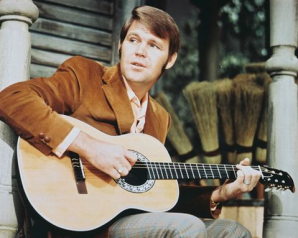
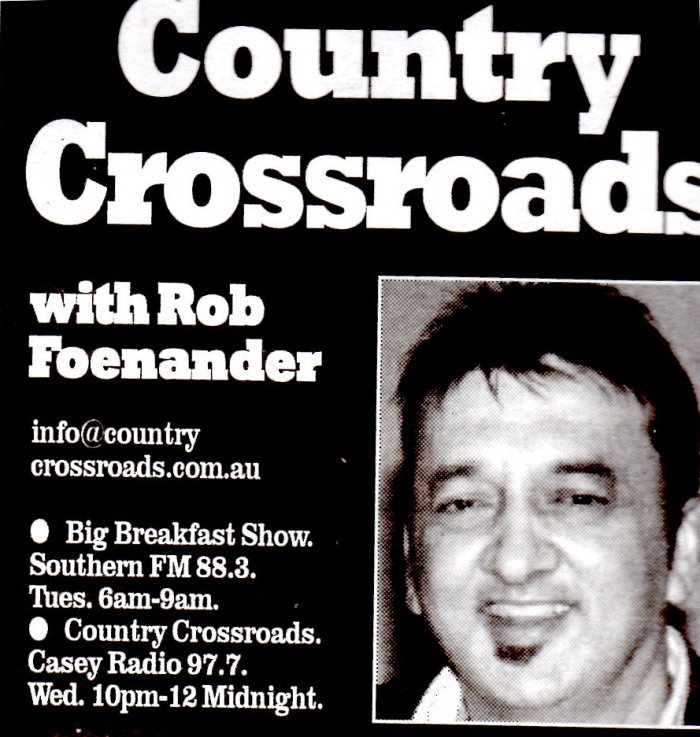 Mildura Country Music Fest.
Mildura Country Music Fest.
The Annual Mildura Country Music Festival will run from September 30 to October 9.
The Event is Australia’s largest independent country music event and will feature over 100 artists performing at 28 separate venues.
The highlight of the event is the Australian Independent Country Music Awards (or Southern Stars) present at
ion where artists will compete in eight different States.
Finalists will be announced in August.
New Album for Lee
Lee Kernaghan OAM, and 2008 Australian of the Year, is set to release a new double album featuring 42 of his top hits.
The Ultimate Hits collection will be available through ABC Music on September 30.
Shania in Record Books
Country Music superstar Shania Twain has become the top selling female artist in the history of country music with sales of more than 75 million.
June has been a hectic month for Shania with several significant milestones including a best-selling book, a star on the Hollywood Walk of Fame and news of a headline residency at Caesars Palace in Las Vegas.
Shania’s first new CD in six years, Today is Your Day is out shortly.
Live Country Music
The Pascoe Vale RSL is one of only a few venues that present live country music every week in Melbourne.
The club is host to the Country Music Guild of Australasia. The featured bands for July are: July 1: Rough Cut, July 8: The Dalton Gang, July 15: Sandra Humphries, July 22: Phoenix, July 29: The Speedsters.
Glen Campbell Diagnosed
Legendary entertainer Glen Campbell, 75, has revealed he is in the early stages of Alzheimer’s.
Glen has gone public with the news because he wanted his fans to know about his condition.
The Grammy-winning Rhinestone Cowboy singer is planning a farewell tour and album for later in the year.
The diagnosis came only six months ago according to a recent interview he gave. 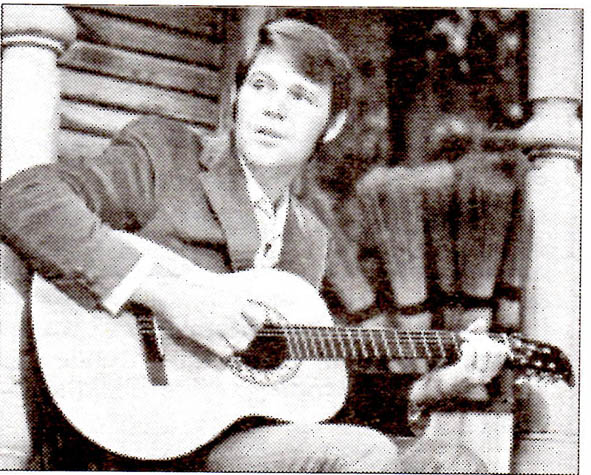
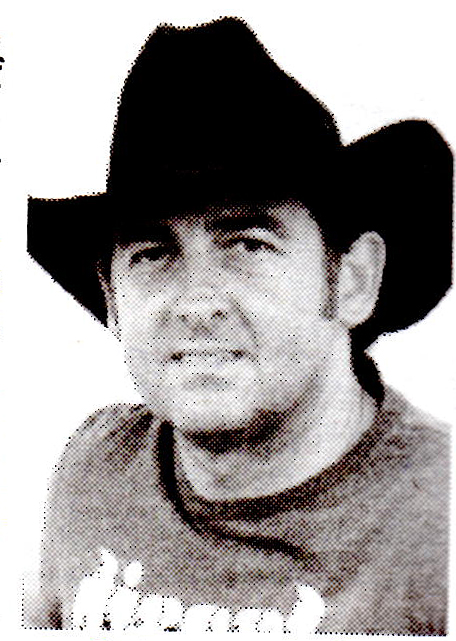
Glen Campbell Lee Kernaghan
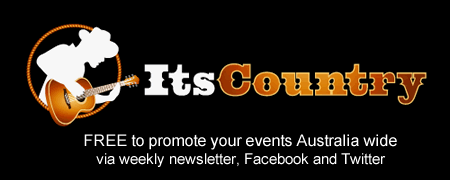
 Subscribe to RSS Feed
Subscribe to RSS Feed